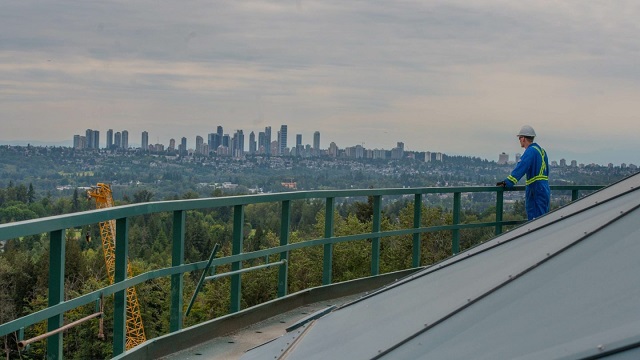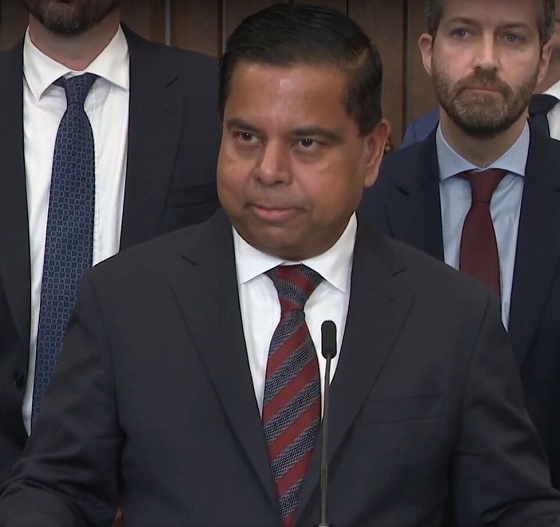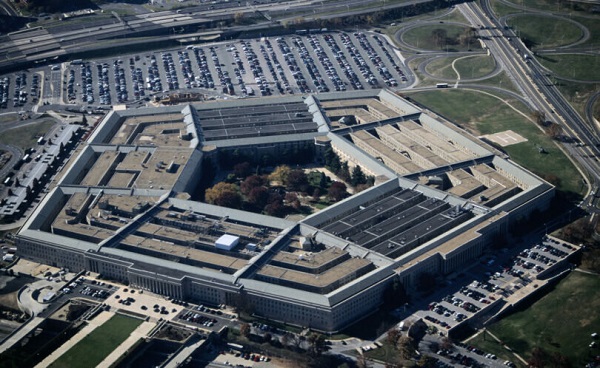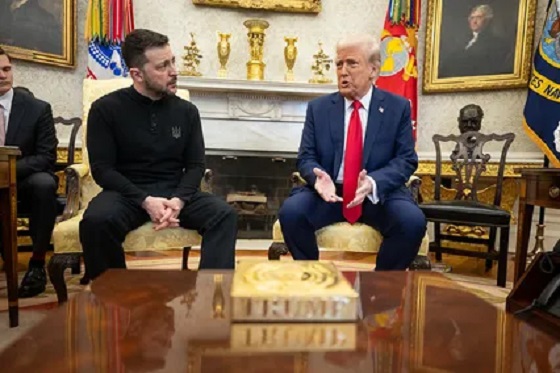Alberta
Start-up of Trans Mountain expansion ‘going very well’ as global buyers ink deals for Canadian crude

A worker at Trans Mountain’s Burnaby Terminal. Photo courtesy Trans Mountain Corporation
From the Canadian Energy Centre
Chinese refiner pays about US$10 more for oil off TMX compared to sales value in Alberta
Canada’s oil sands producers are “back in the limelight” for investors following completion of the Trans Mountain pipeline expansion, according to a report by Enervus Intelligence Research.
For the first time in the better part of a decade, there is now breathing room on the system to ship all of the oil producers are able to sell off the coast of B.C.
Up until this May, Trans Mountain was regularly overbooked. Not anymore.
The crude carrier Dubai Angel picked up the first shipment from the long-awaited expansion on May 22, setting sail for China and a customer of oil sands producer Suncor Energy.
Analysts estimate Trans Mountain loaded 20 vessels in June, compared to a pre-expansion average of five per month.
“You’re seeing multiple buyers. It’s going very well,” said Phil Skolnick, managing director of research with New York-based Eight Capital.
“You’re seeing the exact buyers that we always thought were going to show up, the U.S. west coast refineries and as well as the Asian refineries, and there was a shipment that went to India as well.”
 The “Golden Weld” in April 2024 marked the mechanical completion and end of construction for the Trans Mountain expansion project. Photo courtesy Trans Mountain Corporation
The “Golden Weld” in April 2024 marked the mechanical completion and end of construction for the Trans Mountain expansion project. Photo courtesy Trans Mountain Corporation
Canadian crude in demand on the global market
Asian markets – particularly China, where refineries can process “substantial quantities” of extra heavy crude and bitumen – are now “opened in earnest” to Canadian oil, the International Energy Agency (IEA) said in its June Oil 2024 report.
“There’s demand for this crude and people are going to make deals,” said Kevin Birn, chief analyst of Canadian oil markets with S&P Global.
The IEA said Canadian crude will increasingly compete with heavy oil from other countries, particularly those in Latin America and the Middle East.
June’s loading of 20 vessels is slightly lower than the 22 vessels Trans Mountain had targeted, but Skolnick said a few bumps in the project’s ramp-up are to be expected.
“About three months ago, the shippers were telling investors on their calls, don’t expect it to be a smooth ramp up, it’s going to be a bit bumpy, but I think they’re expecting by Q4 you should start seeing everyone at peak rates,” Skolnick said.
Delivering higher prices
Trans Mountain’s expanded Westridge Terminal at Burnaby, B.C. now has capacity to load 34 so-called “Aframax” vessels each month.
One of the first deals, with Chinese refiner Rongsheng Petrochemical, indicates the Trans Mountain expansion is delivering on one of its expected benefits – higher prices for Canadian oil.
Canada’s Parliamentary Budget Office has said that an increase of US$5 per barrel for Canadian heavy oil over one year would add $6 billion to Canada’s economy.
The June deal between Rongsheng and an unnamed oil sands shipper saw a shipment of Access Western Blend (AWB) purchased for approximately US$6 per barrel below the Brent global oil benchmark. That implies an AWB selling price of approximately US$75 per barrel, or about US$10 more than the price received for AWB in Alberta.
 Expanded export capacity at the Trans Mountain Westridge Terminal. Photo courtesy Trans Mountain Corporation
Expanded export capacity at the Trans Mountain Westridge Terminal. Photo courtesy Trans Mountain Corporation
More pipeline capacity needed
Oil sands production – currently about 3.4 million barrels per day – is projected to rise to 3.8 million barrels per day by the end of the decade before declining slightly to about 3.6 million barrels per day in 2035, according to the latest outlook by S&P Global.
“Despite the recent completion of the Trans Mountain Expansion project, additional capacity will still be needed, likely via expansion or optimization of the existing pipeline system,” wrote Birn and S&P senior research analyst Celina Hwang in May.
“By 2026, we forecast the need for further export capacity to ensure that the system remains balanced on pipeline economics.”
Uncertainty over the federal government’s proposed oil and gas emissions cap “adds hesitation” to companies considering large-scale production growth, wrote Birn and Hwang.
Global oil demand rising
World oil demand, which according to the IEA reached a record 103 million barrels per day in 2023, is projected to continue rising despite increased investment in renewable and alternative energy.
A June outlook by the International Energy Forum (IEF) pegs 2030 oil demand at nearly 110 million barrels per day.
“More investment in new oil and gas supply is needed to meet growing demand and maintain energy market stability, which is the foundation of global economic and social well-being,” said IEF secretary Joseph McMonigle.
Alberta
Alberta Premier Danielle Smith Discusses Moving Energy Forward at the Global Energy Show in Calgary

From Energy Now
At the energy conference in Calgary, Alberta Premier Danielle Smith pressed the case for building infrastructure to move provincial products to international markets, via a transportation and energy corridor to British Columbia.
“The anchor tenant for this corridor must be a 42-inch pipeline, moving one million incremental barrels of oil to those global markets. And we can’t stop there,” she told the audience.
The premier reiterated her support for new pipelines north to Grays Bay in Nunavut, east to Churchill, Man., and potentially a new version of Energy East.
The discussion comes as Prime Minister Mark Carney and his government are assembling a list of major projects of national interest to fast-track for approval.
Carney has also pledged to establish a major project review office that would issue decisions within two years, instead of five.
Alberta
Punishing Alberta Oil Production: The Divisive Effect of Policies For Carney’s “Decarbonized Oil”

From Energy Now
By Ron Wallace
The federal government has doubled down on its commitment to “responsibly produced oil and gas”. These terms are apparently carefully crafted to maintain federal policies for Net Zero. These policies include a Canadian emissions cap, tanker bans and a clean electricity mandate.
Following meetings in Saskatoon in early June between Prime Minister Mark Carney and Canadian provincial and territorial leaders, the federal government expressed renewed interest in the completion of new oil pipelines to reduce reliance on oil exports to the USA while providing better access to foreign markets. However Carney, while suggesting that there is “real potential” for such projects nonetheless qualified that support as being limited to projects that would “decarbonize” Canadian oil, apparently those that would employ carbon capture technologies. While the meeting did not result in a final list of potential projects, Alberta Premier Danielle Smith said that this approach would constitute a “grand bargain” whereby new pipelines to increase oil exports could help fund decarbonization efforts. But is that true and what are the implications for the Albertan and Canadian economies?
The federal government has doubled down on its commitment to “responsibly produced oil and gas”. These terms are apparently carefully crafted to maintain federal policies for Net Zero. These policies include a Canadian emissions cap, tanker bans and a clean electricity mandate. Many would consider that Canadians, especially Albertans, should be wary of these largely undefined announcements in which Ottawa proposes solely to determine projects that are “in the national interest.”
The federal government has tabled legislation designed to address these challenges with Bill C-5: An Act to enact the Free Trade and Labour Mobility Act and the Building Canada Act (the One Canadian Economy Act). Rather than replacing controversial, and challenged, legislation like the Impact Assessment Act, the Carney government proposes to add more legislation designed to accelerate and streamline regulatory approvals for energy and infrastructure projects. However, only those projects that Ottawa designates as being in the national interest would be approved. While clearer, shorter regulatory timelines and the restoration of the Major Projects Office are also proposed, Bill C-5 is to be superimposed over a crippling regulatory base.
It remains to be seen if this attempt will restore a much-diminished Canadian Can-Do spirit for economic development by encouraging much-needed, indeed essential interprovincial teamwork across shared jurisdictions. While the Act’s proposed single approval process could provide for expedited review timelines, a complex web of regulatory processes will remain in place requiring much enhanced interagency and interprovincial coordination. Given Canada’s much-diminished record for regulatory and policy clarity will this legislation be enough to persuade the corporate and international capital community to consider Canada as a prime investment destination?
As with all complex matters the devil always lurks in the details. Notably, these federal initiatives arrive at a time when the Carney government is facing ever-more pressing geopolitical, energy security and economic concerns. The Organization for Economic Co-operation and Development predicts that Canada’s economy will grow by a dismal one per cent in 2025 and 1.1 per cent in 2026 – this at a time when the global economy is predicted to grow by 2.9 per cent.
It should come as no surprise that Carney’s recent musing about the “real potential” for decarbonized oil pipelines have sparked debate. The undefined term “decarbonized”, is clearly aimed directly at western Canadian oil production as part of Ottawa’s broader strategy to achieve national emissions commitments using costly carbon capture and storage (CCS) projects whose economic viability at scale has been questioned. What might this mean for western Canadian oil producers?
The Alberta Oil sands presently account for about 58% of Canada’s total oil output. Data from December 2023 show Alberta producing a record 4.53 million barrels per day (MMb/d) as major oil export pipelines including Trans Mountain, Keystone and the Enbridge Mainline operate at high levels of capacity. Meanwhile, in 2023 eastern Canada imported on average about 490,000 barrels of crude oil per day (bpd) at a cost estimated at CAD $19.5 billion. These seaborne shipments to major refineries (like New Brunswick’s Irving Refinery in Saint John) rely on imported oil by tanker with crude oil deliveries to New Brunswick averaging around 263,000 barrels per day. In 2023 the estimated total cost to Canada for imported crude oil was $19.5 billion with oil imports arriving from the United States (72.4%), Nigeria (12.9%), and Saudi Arabia (10.7%). Since 1988, marine terminals along the St. Lawrence have seen imports of foreign oil valued at more than $228 billion while the Irving Oil refinery imported $136 billion from 1988 to 2020.
What are the policy and cost implication of Carney’s call for the “decarbonization” of western Canadian produced, oil? It implies that western Canadian “decarbonized” oil would have to be produced and transported to competitive world markets under a material regulatory and financial burden. Meanwhile, eastern Canadian refiners would be allowed to import oil from the USA and offshore jurisdictions free from any comparable regulatory burdens. This policy would penalize, and makes less competitive, Canadian producers while rewarding offshore sources. A federal regulatory requirement to decarbonize western Canadian crude oil production without imposing similar restrictions on imported oil would render the One Canadian Economy Act moot and create two market realities in Canada – one that favours imports and that discourages, or at very least threatens the competitiveness of, Canadian oil export production.
Ron Wallace is a former Member of the National Energy Board.
-

 International12 hours ago
International12 hours agoIsrael’s Decapitation Strike on Iran Reverberates Across Global Flashpoints
-

 Business22 hours ago
Business22 hours agoTrump: ‘Changes are coming’ to aggressive immigration policy after business complaints
-

 Business1 day ago
Business1 day agoThe carbon tax’s last stand – and what comes after
-

 Business2 days ago
Business2 days agoJustice Centre launches new petition: Keep cash legal and accessible. Stop Bill C-2
-

 illegal immigration21 hours ago
illegal immigration21 hours agoLA protests continue as judge pulls back CA National Guard ahead of ‘No Kings Day’
-

 International1 day ago
International1 day agoPentagon agency to simulate lockdowns, mass vaccinations, public compliance messaging
-

 National1 day ago
National1 day agoCarney promotes MP instrumental in freezing Freedom Convoy donors’ bank accounts
-

 Business2 days ago
Business2 days agoAudit report reveals Canada’s controversial COVID travel app violated multiple rules






